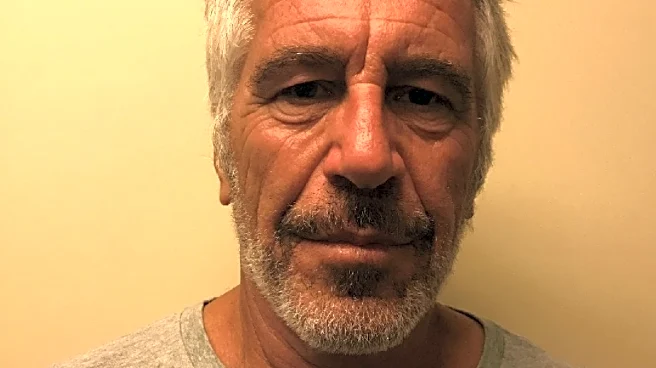In late 2014, Jeffrey Epstein received an email from Maldives’ former president Mohamed Waheed Hassan. “Jeffrey. Need your advice,” the ex-leader wrote, explaining that his finance minister had told him about an “anonymous funds manager who is willing to deposit 4 billion dollars” in the country’s coffers.
“I don’t feel I have enough information on this. I don’t know who this funds manager is,” he added. “What do you think I should do? Does this all sound ridiculous to you? I have a strange feeling about this whole thing.”
Epstein’s reply to what appeared to be a nervous Hassan was blunt: “this from a fraud web site, your mimister (minister) will get upset that you dont want to at least try, what do we have to lose, always the pitch”.
Thousands
of documents released by the House Oversight Committee on Wednesday offer a fresh look at how Epstein interacted with business leaders, journalists, academics and political figures over the course of a decade.
The messages begin around the time he completed his Florida sentence in 2009 and continue up to the months before his arrest on federal sex-trafficking charges in 2019.
Across that period, Epstein’s network was strikingly broad, cutting across countries and political lines. Figures as varied as liberal academic Noam Chomsky and Steve Bannon, a longtime ally of former US President Donald Trump, were among those in contact with him.
Some wrote to express support as Epstein faced lawsuits and renewed scrutiny. Others sought introductions or advice on subjects ranging from dating to oil prices. One even consulted him on how to respond to sexual harassment allegations, according to an Associated Press report.
Epstein was charged with sex trafficking in 2019 and died by suicide in jail a month later. His crimes, high-profile connections and the circumstances of his death have fuelled conspiracy theories and online speculation for years.
‘Need To Understand More About Trump‘
Jagland, Norway’s former prime minister, turned to Epstein as a resource while he tried to get to grips with the incoming Trump administration. In February 2017, a month after Trump’s first inauguration, Jagland asked if he could visit Epstein in Strasbourg, the seat of the European Parliament. “I really need to understand more about Trump and what’s going on in the American society,” Jagland wrote.
At the time, Jagland was serving as secretary-general of the Council of Europe, the continent’s leading body on human rights and the rule of law.
Epstein appears to have embraced his reputation as a font of wisdom. In the typo-strewn, sometimes jarringly informal emails, he presents himself as an authority on Trump’s mindset and negotiating tactics, offering blunt, confident takes to his correspondents. “He understood trump after our conversations. it is not complex. he must be seen to get something its that simple,” Epstein wrote to Jagland, referring to conversations with Vitaly Churkin, Russia’s former UN ambassador.


/images/ppid_a911dc6a-image-177101752951095973.webp)




/images/ppid_a911dc6a-image-177101403147018469.webp)
/images/ppid_a911dc6a-image-177101053501199609.webp)
/images/ppid_59c68470-image-177101003680064644.webp)



